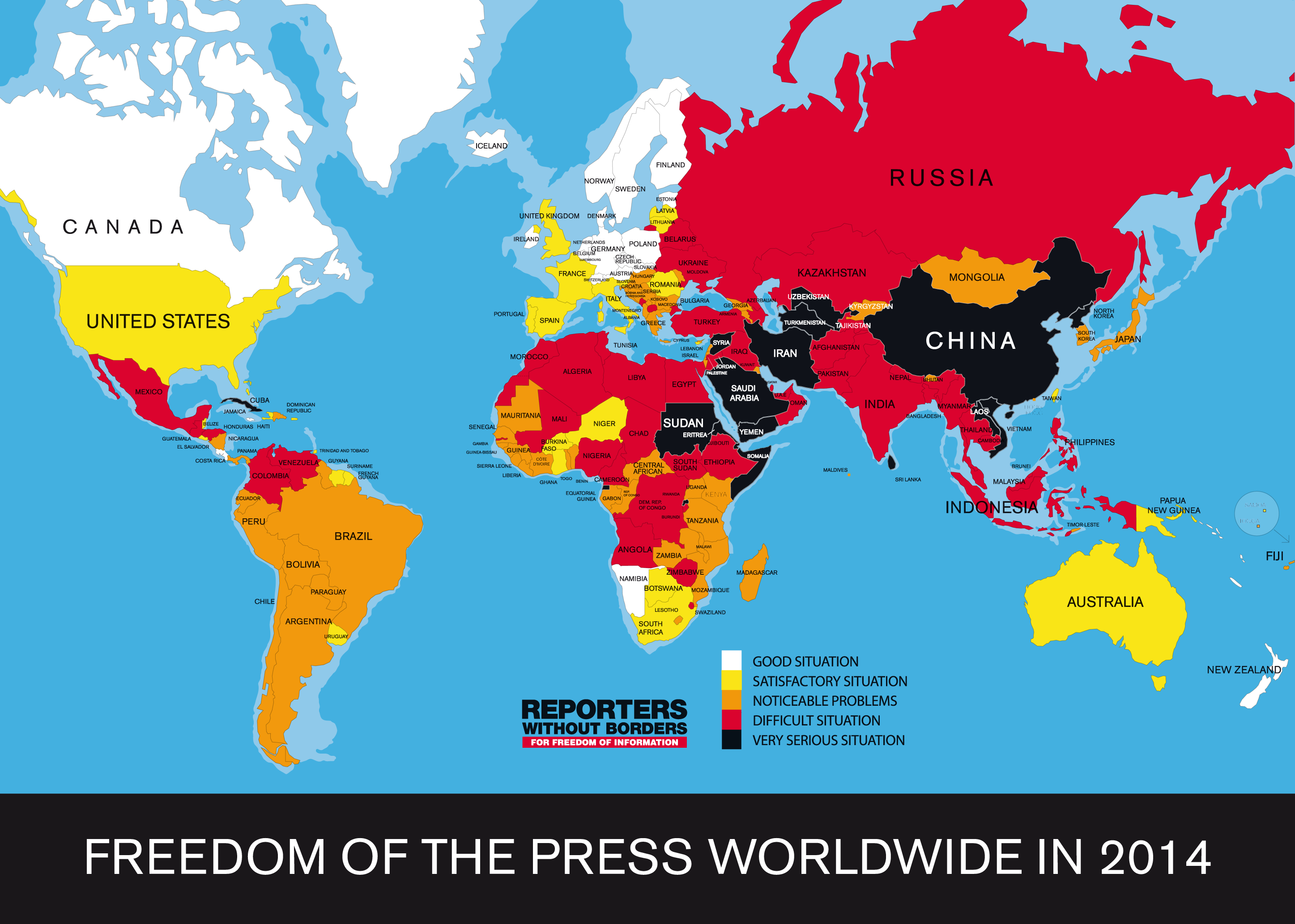Billions of people still live under regimes that severely restrict the press and the Web. That’s the lesson of a map recently released by a press freedom advocacy group, highlighting the worst countries in the world for information freedom.
The map, based on Reporters Without Borders’ press freedom rankings for 180 countries, shows home of the current Winter Olympics Russia in bright red, indicating a “difficult situation” for journalists and bloggers there. Russia, ranked 148th, shuts down seditious websites, bans so-called homosexual propaganda, prohibits religiously offensive expression, and heavily controls national TV stations, Russians’ main source of news.
The U.S. shows a “satisfactory situation,” but it has dropped 14 ranks since last year’s report and now sits at the 46th spot. This decline, according to the report, is due to the Obama administration’s hostility toward whistleblowers and leakers and the conviction of Chelsea Manning for releasing a trove of classified documents to WikiLeaks in 2010.
Most of Central and South America have “noticeable problems” or “difficult” situations. Those countries’ low rankings are in part due to the murders of journalists by powerful criminal organizations. In Mexico alone, 88 journalists were killed between 2000 and 2013. Some countries also suffer from a lack of editorial independence from the political system. In Brazil, for example, rich regional politicians own local newspapers, and the national media are in the hands of a small number of families.
The countries with the worst ranking include Syria, Iran, Saudi Arabia, North Korea, and China. In these countries, government authorities or militant groups intimidate, incarcerate, or even kill journalists, and access to the Web is carefully restricted.
